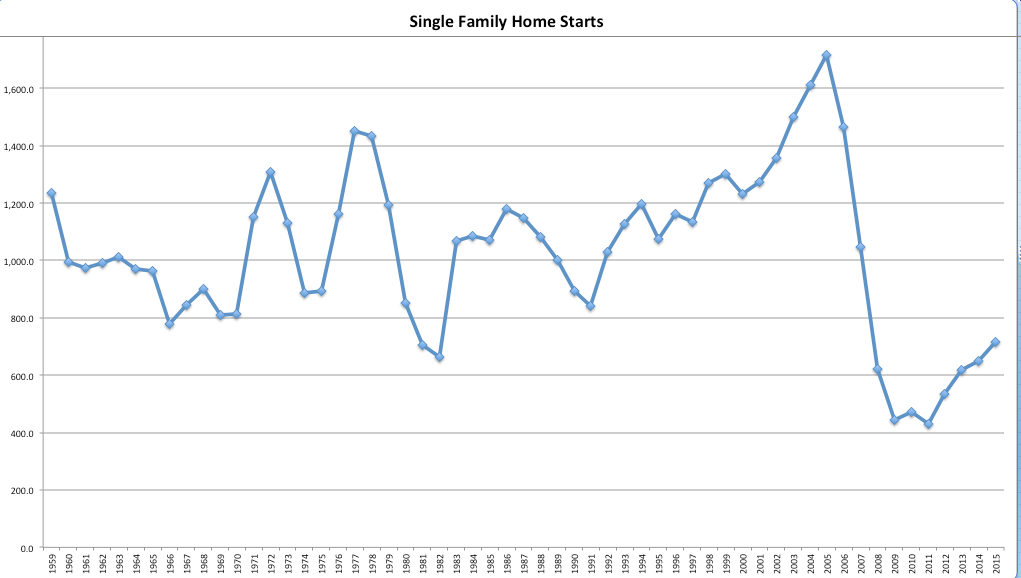Buried in Paul Krugman’s column today was an interesting fact, of which I was not previously aware: As a result of action/inaction by President Obama, the income tax rate paid by the top 1% of earners is back up to where it was in 1979, before President Reagan took office.
Weirdly, upon reading the above, my mind jumped to a fundamental change which appears to have happened in the economy since the crash of 2008-9: Single-family home starts cratered and have so far failed to recover to “normal” levels.
Here is a graph of single family home starts illustrating the above (forgive my excel skills, please!):
Note that starts remain very low by historical standards. And, because homebuilding represents something like 3-5% of GDP, this failure to return to “normal” levels causes real harm to the economy.
The question is: Why is this the case, particularly since Millennials have begun reaching the prime home-buying age?
There are lots of theories, including:
- Millennials want to live in cities and not suburbs, so they’re renting instead of moving out to the edges and buying;
- Developers got killed in the crash and many have not reentered the market;
- Construction financing
- Financing for buyers is tighter
But what if it’s a taxation issue?
Here’s a possible explanation:
- Income from the development and sale of single family homes is taxed as income, as opposed to capital gains
- Small developers are typically organized as LLCs, which are pass-through entities for the purposes of taxation, meaning that they pay personal income tax on their profits.
- Almost any successful development / sale of single family homes is going to push the developer into the highest tax bracket in the year the homes are sold
- The tax rate to which the developer is exposed, at least in CA, is north of 50% (including state taxes and the Obamacare surcharge)
Homebuilding is an extremely risky business (as demonstrated by the recent crash). It would not surprise me if a substantial portion of the smaller homebuilders who know how to do the business are looking at the balance of risk and (post-tax) reward and deciding to spend their time doing something else.
